The MenCare Parental Leave Platform
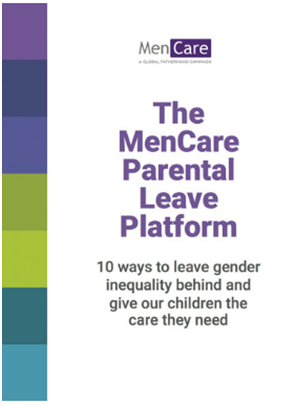
men-care.org
test

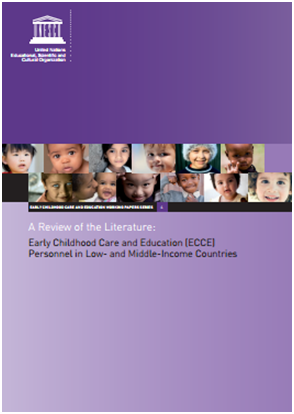
A Review of the Literature: Early Childhood Care and Education (ECCE) Personnel in Low- and Middle-Income Countries was commissioned to inform the development of a common survey instrument for the UNESCO pilot Survey of Teachers in Pre-Primary Education (STEPP) which will collect data on Early Childhood Care and Education (ECCE) personnel in selected low- and middle income countries (LMICs). The authors address three questions in this literature review:
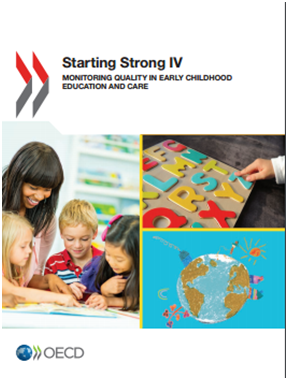
Research suggests that, when it comes to early childhood education and care, quality matters most. A growing number of countries are establishing monitoring systems to ensure quality and accountability in these programmes.
This new publication explores how countries can develop and use these systems to enhance service and staff quality for the benefit of child development. It offers an international perspective and concrete examples to help policy makers, monitoring experts and practitioners in the field develop their own monitoring policies and practices.
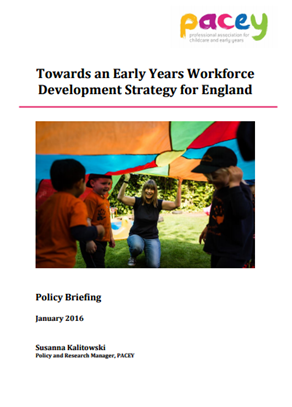
The quality and qualifications of the childcare and early years workforce are steadily improving and have never been better. But the sector has reached tipping point, with increasing evidence that early years practitioners are severely under strain.
The public funding environment is set to remain challenging over the next five years. However the substantial investment in early education and childcare that is being made through the Tax-Free Childcare scheme and the doubling of the free childcare entitlement for working families provides a vital opportunity to support workforce development. This briefing makes a series of practical recommendations, many of which do not require additional public funding, which seek to remove barriers to entry and progression and support the sector to retain and make the most of the talented individuals already working in childcare and early years.
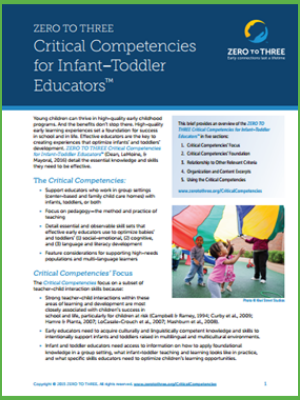
The appendices from the Critical Competencies for Infant-Toddler Educators Related Professional Criteria, provide clear and concise guidance on essential knowledge and skills for infant-toddler educators.
Illustrating how criteria from various partners can be used together to support the preparation and professional development of infant-toddler educators, this document includes related professional criteria, tools and child development benchmarks.
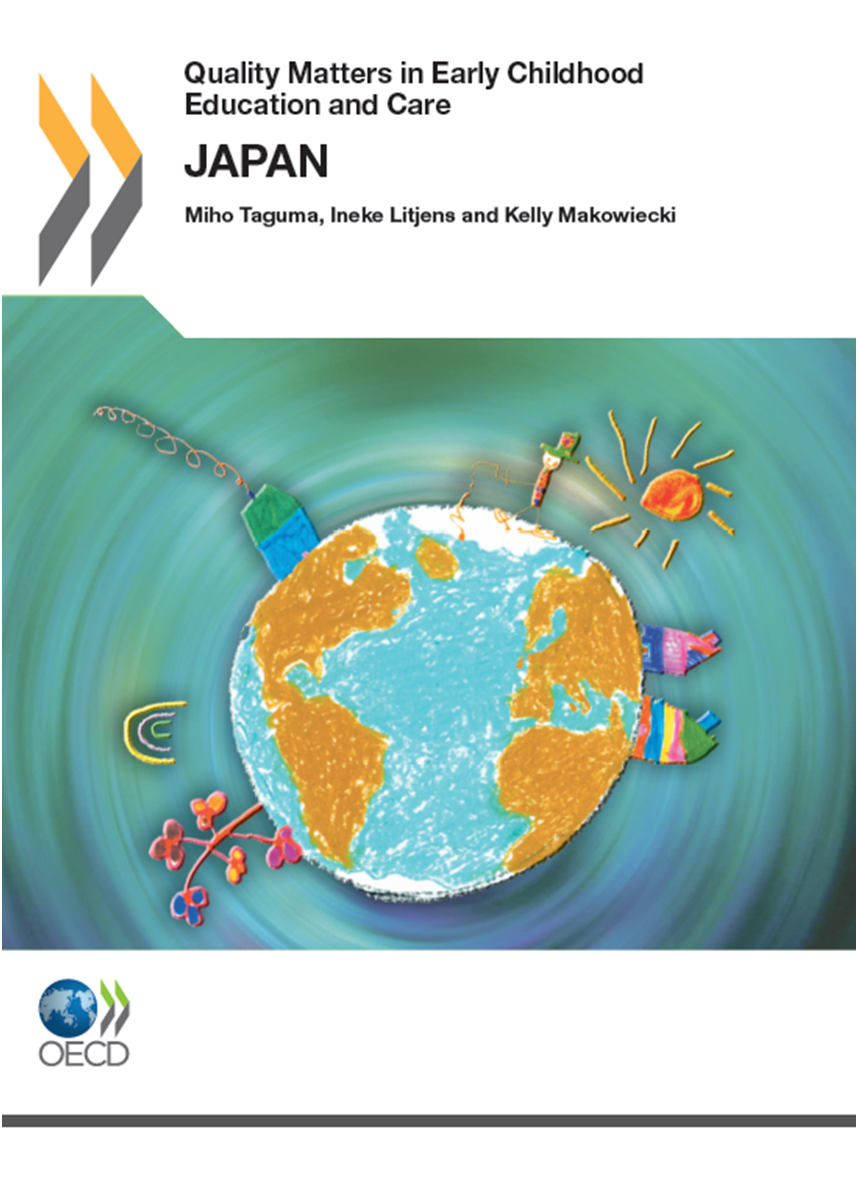
ECEC professionals’ qualifications and working conditions are inseparably linked to the quality of education and care children receive. This series of reports present why do workforce qualifications, education, training and working conditions matter for better child development. Each of the reports also describe where each of the respective countries (Slovak Republic, Japan and Finland) stand compared to other countries in terms of workforce qualifications, training and working conditions, what are the challenges they face and what strategies have been employed in order to address those challenges.
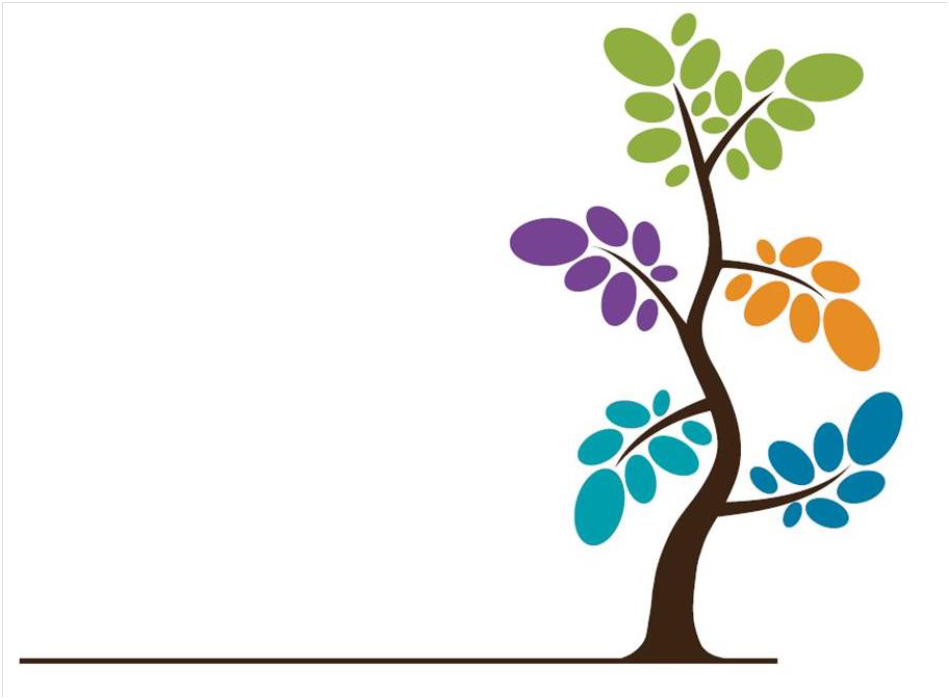
Early Years Workforce Strategy is the early childhood education and care workforce strategy for Australia from 2012 through 2016. It sets out a vision agreed upon by Australian governments, which aims to build and support the early childhood education and care profession. The strategy aims to guide governments, as well as the sector as a whole, to: deliver a sustainable, highly qualified and professional workforce; foster a flexible and responsive workforce capable of identifying and delivering services in response to the needs of children and families; and support ECEC staff to work in a more integrated way with the broader early childhood development (ECD) workforce including the range of professionals that work with children and their families across health and family services. The following five priority areas have been identified as essential components of achieving a sustainable and highly qualified ECEC workforce: 1) a professional workforce; 2) a growing workforce; 3) a qualified workforce; 4) a responsive workforce; and 5) a collaborative workforce.
The strategy which builds on 2009’s Investing in the Early Years –A National Early Childhood Development Strategy, reflects a commitment by governments to address the immediate priorities for the ECEC workforce, and at the same time working towards a long-term broader strategy for the workforce with a focus on supporting more integrated ways of working across the ECD sector.
Commissioned By:
Standing Council on School Education and Early Childhood
2012
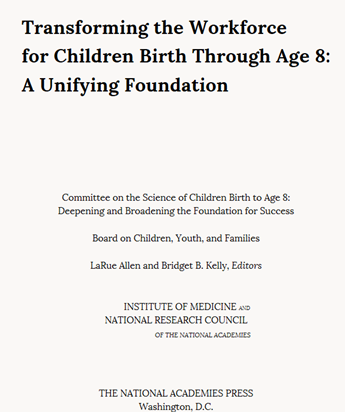
Young children thrive and learn best when they have secure, positive relationships with adults who are knowledgeable about how to support their development and learning and are responsive to their individual progress.
Transforming the Workforce for Children Birth Through Age 8 offers guidance on system changes to improve the quality of professional practice, specific actions to improve professional learning systems and workforce development, and research to continue to build the knowledge base in ways that will directly advance and inform future actions. The recommendations of this book provide an opportunity to improve the quality of the care and the education that children receive, and ultimately improve outcomes for children.
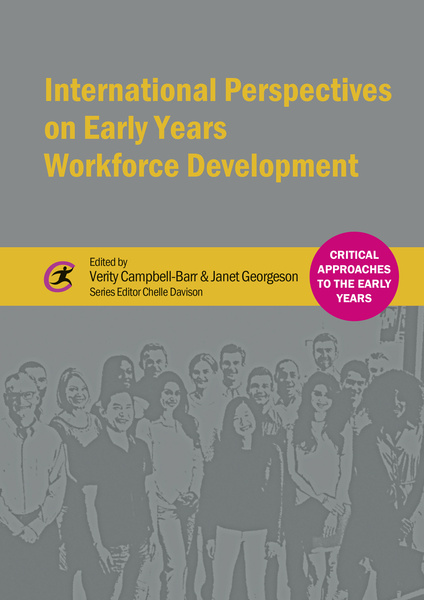
This up to date text is suitable for students on all early years and early childhood courses as well as interested practitioners. It looks at the current structure of the early childhood education and care (ECEC) workforce in different countries, each of which represents a distinct philosophical tradition, tracing what has shaped this structure and examining how politics and policy have moulded the workforce over time. Each chapter analyses historical, philosophical and political developments in the respective country and looks at key theorists, the concepts of childhood that have shaped the workforce and the pedagogical approach. The unique aspects of each country are highlighted along with a consideration of what the future might hold for the workforce. Students and practitioners will achieve a more critical understanding of current practice and the beliefs which underpin particular pedagogical approaches while being encouraged to question their own values and practice.
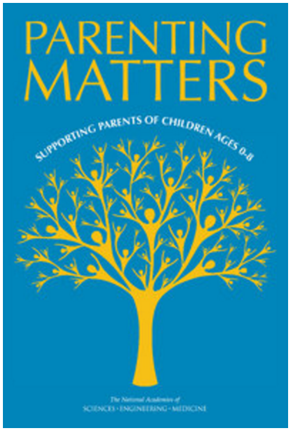
Decades of research have demonstrated that the parent-child dyad and the environment of the family—which includes all primary caregivers—are at the foundation of children's well- being and healthy development. From birth, children are learning and rely on parents and the other caregivers in their lives to protect and care for them. The impact of parents may never be greater than during the earliest years of life, when a child's brain is rapidly developing and when nearly all of her or his experiences are created and shaped by parents and the family environment.
Parenting Matters identifies parenting knowledge, attitudes, and practices associated with positive developmental outcomes in children ages 0-8; universal/preventive and targeted strategies used in a variety of settings that have been effective with parents of young children and that support the identified knowledge, attitudes, and practices; and barriers to and facilitators for parents' use of practices that lead to healthy child outcomes as well as their participation in effective programs and services. This report makes recommendations directed at an array of stakeholders, for promoting the wide-scale adoption of effective programs and services for parents and on areas that warrant further research to inform policy and practice. It is meant to serve as a roadmap for the future of parenting policy, research, and practice in the United States.